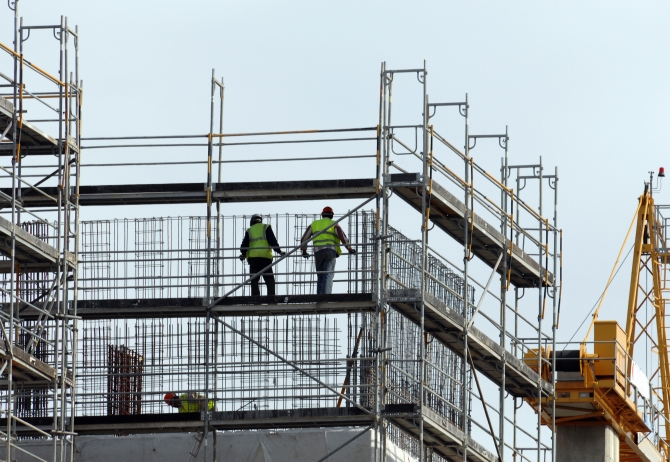UK construction companies reported a sharp fall in growth momentum in April, with output and new orders expending at the slowest rates since June 2013, according to the latest industry survey by Markit.

As a result of this fall in activity, the Markit/CIPS UK Construction Purchasing Managers’ Index (PMI) fell to 54.2, significantly lower than March’s 57.8 reading and particularly disappointing given analysts’ predictions for a 57.4 result.
While any reading above 50 does signifies growth, the steepness of the decline has caused a degree of concern that the sector may have begun to contract very soon after a much awaited recovery.
Residential building activity remained the best performing area of construction output, despite the pace of expansion falling to a 22 month low. Commercial construction work was the least marked since August 2013 while civil engineering activity decreased for the first time in four months.
Group chief executive of the Chartered Institute of Procurement and Supply, David Noble, believes that the latest result may simply be a hiccup due to the proximity of the general election.
He says; “The General Election has given the sector pause for thought as procurement and supply management professionals reported a slowdown in the pace of new construction orders growth.
“Though the index still remains in positive terrain, this deceleration has been attributed to project delays and hesitancy as the country prepares to vote.
“Though new business growth in the sector has slowed for eight months out of the last ten, business optimism is only slightly bruised and remains more solid than the average over the life of the index.”
Fortunately, the headline figures do not tell the whole story of the construction sector at present and in fact mask a number of positive elements noted by Markit economists in April.
By far the most encouraging was the continued fast rate of employment growth within the construction industry, as although this has slowed notably since the average seen in 2014, the level of optimism expressed by the majority of firms has allowed for robust jobs creation within the industry as a whole.
Overall, the report indicates that the greatest pressure facing firms during April was the general election, with many respondents believing that the removal of this factor would support new business gains.
Markit senior economist Tim Moore agrees with this assessment, saying; “Despite experiencing pre-election risk aversion among clients in April, construction companies indicated a strong degree of confidence regarding the year-ahead outlook.
“As a result, job hiring was robust and little-changed since March, placing further pressure on skilled staff availability.
“Taken as a whole, the latest survey presents a far more upbeat picture than the curiously weak official construction output data for the first quarter of 2015.”
Previous Post
Property Writedowns add to Sainsbury’s Woes